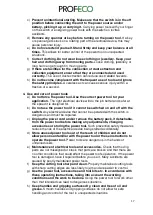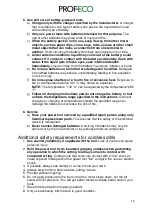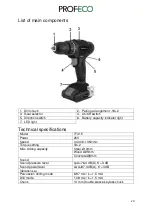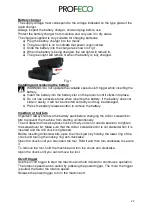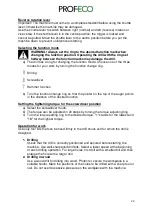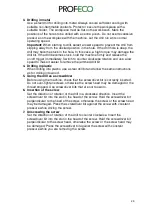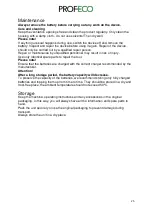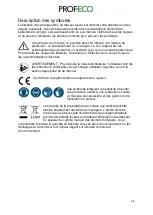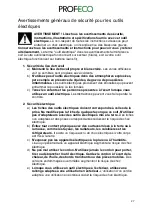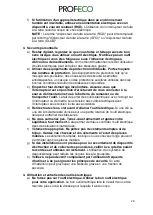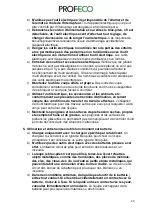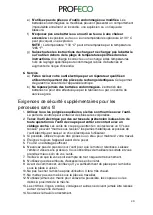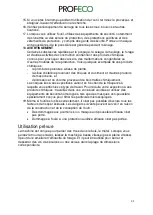
16
General safety warnings for power tools
WARNING! Read all safety warnings, instructions, illustrations and
specifications supplied with this power tool.
Failure to follow all of the
instructions below may result in electric shock, fire and/or serious injury.
Save all warnings and instructions for future reference.
The term "power tool" in the warnings refers to your mains-operated (corded) power
tool or to your battery-operated (cordless) power tool.
1. Workplace safety
a)
Keep the workplace clean and well lit.
Cluttered or dark areas invite
accidents.
b)
Do not use power tools in explosive atmospheres, such as in the
presence of flammable liquids, gases or dusts.
Power tools create
sparks which may ignite the dust or fumes.
c)
Keep children and bystanders away when operating a power tool.
Distractions can cause you to lose control.
2. Electrical safety
a)
The plugs of the power tools must match those of the socket. Do not
modify the plug in any way. Do not use adapters with grounded
power tools.
Non-adapted plugs and appropriate sockets reduce the risk
of electric shock.
b)
Avoid physical contact with earthed or grounded surfaces, such as
pipes, radiators, cookers and refrigerators.
There is an increased risk of
electric shock if your body is grounded.
c)
Do not expose electrical appliances to rain or wet conditions.
If water
gets into an electrical appliance, the risk of electric shock increases.
d)
Do not misuse the power cord. Never use the cord to carry, pull or
disconnect the power tool. Keep the cord away from heat, oil, sharp
edges or moving parts.
Damaged or tangled cords increase the risk of
electric shock.
e)
When using an electrical appliance outdoors, use an extension cord
suitable for outdoor use.
Using a cord suitable for outdoor use reduces
the risk of electric shock.
f)
If the use of an electrical appliance in a damp environment is
unavoidable, use a power supply with a residual current device
(RCD).
The use of an RCD reduces the risk of electric shock.
NOTE:
The term "residual current device (RCD)" may be replaced by the
term "residual current device (GFCI)" or "residual current device (ELCB)".
3. Personal safety
a)
Stay alert, watch what you are doing and use common sense when
operating a power tool. Do not use a power tool if you are tired or
under the influence of drugs, alcohol or medication.
A moment's
inattention while operating a power tool can lead to serious personal injury.
b)
Use personal protective equipment. Always wear eye protection.
Protective equipment such as a dust mask, safety shoes with non-slip
soles, a helmet or hearing protection used under the right conditions will
reduce personal injuries.
















